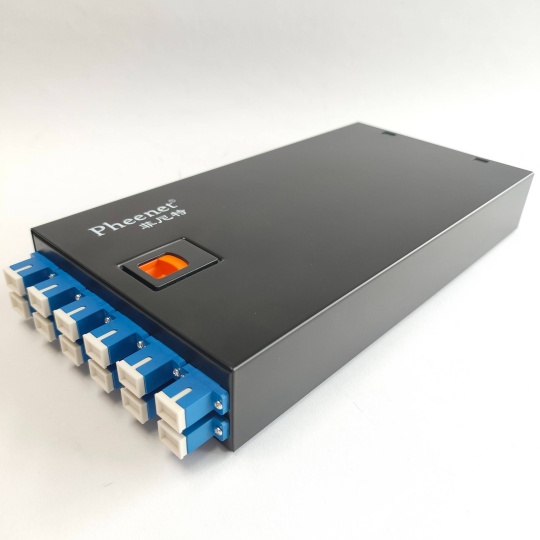What are the types of industrial cable for control systems?
Industrial control systems (ICS) are the “nervous system” of modern factories, governing the operation of machinery, production lines, and automated processes. The reliability of these systems hinges on industrial control cables—components that transmit critical control signals, power, and data. Choosing the right cable type directly affects signal integrity, resistance to harsh conditions, and long-term operational stability. Below is a detailed breakdown of the core industrial cable types for control systems, along with their key attributes and typical applications.
1. PVC-Insulated Industrial Control Cables
Polyvinyl Chloride (PVC) is one of the most widely used insulation materials for industrial control cables, thanks to its balance of cost-effectiveness and basic performance.
- Key Features: Excellent electrical insulation, resistance to water, mild chemicals (e.g., cleaning agents), and abrasion. It operates reliably in temperatures ranging from -15°C to 70°C, making it suitable for non-extreme environments. The material is also easy to process, enabling flexible cable designs for tight spaces (e.g., control panels).
- Limitations: Not 耐高温 (high-temperature resistant); prolonged exposure to temperatures above 70°C can cause insulation hardening or cracking. It also has poor resistance to strong oils or solvents.
- Typical Applications: General manufacturing (e.g., packaging machinery, assembly lines), indoor control cabinets, HVAC systems, and low-demand environments where high temperatures or chemical exposure are absent.
2. Silicone Rubber-Insulated Control Cables
Silicone rubber insulation is designed for harsh, high-temperature scenarios—making it a top choice for industries with extreme thermal conditions.
- Key Features: Exceptional high-temperature resistance (operating range: -60°C to 180°C; premium grades can withstand up to 200°C). It remains flexible even in freezing temperatures, resists ozone, mineral oil, and weak acids, and has good flame retardancy. The insulation also maintains structural stability under frequent bending.
- Advantages Over PVC: Outperforms PVC in both high and low temperatures, and offers better chemical resistance for demanding workflows.
- Typical Applications: Metallurgical industry (e.g., blast furnaces, rolling mills), petrochemical plants (e.g., reactor control lines), automotive paint shops, and high-temperature drying equipment.
3. Shielded Industrial Control Cables
Electromagnetic interference (EMI) and radio frequency interference (RFI) from nearby motors, inverters, or power cables can disrupt control signals. Shielded cables solve this problem by adding a protective layer to block interference.
There are two primary subtypes:
- STP (Shielded Twisted Pair): Features a metal braid (e.g., tinned copper) around twisted conductor pairs. The braid provides mechanical durability and effective shielding against high-frequency EMI (100 MHz+).
- FTP (Foil Twisted Pair): Uses an aluminum-polyester foil layer to cover the conductor pairs. It is lightweight, low-cost, and ensures full coverage (no gaps) to prevent signal leakage.
- Key Features: Preserves signal integrity for sensitive data (e.g., PLC commands, sensor readings) in high-interference environments.
- Typical Applications: CNC machines, industrial robots, data acquisition systems (DAS), and control lines near large motors or variable frequency drives (VFDs).
4. Flame-Retardant & Fire-Resistant Control Cables
Safety-critical control systems (e.g., emergency stops, fire alarms) require cables that resist fire spread or maintain functionality during a fire.
- Flame-Retardant Cables: Meet standards like IEC 60332-1 (prevents flame spread along the cable) or UL 94 V-0 (self-extinguishes within 10 seconds). They do not support sustained burning but may stop working if insulation melts.
- Fire-Resistant Cables: Comply with IEC 60331-21 (maintains circuit integrity for 90 minutes at 750°C) or UL 2196. They use fire-resistant materials (e.g., mica tape) to keep signals flowing during a fire—critical for emergency response.
- Typical Applications: Power plants, subway control systems, hospital medical equipment, and factory emergency stop circuits.
5. Cold-Resistant & Oil-Resistant Control Cables
For outdoor or special environments with low temperatures or oil exposure, these cables are engineered to withstand extreme conditions.
- Cold-Resistant Cables: Use low-temperature flexible insulation (e.g., TPE) to remain pliable at -40°C to -60°C. They avoid cracking or signal loss in freezing climates (e.g., cold storage).
- Oil-Resistant Cables: Feature nitrile rubber (NBR) or polyurethane (PU) insulation that resists mineral oil, hydraulic oil, and diesel.
- Typical Applications: Cold storage facilities, construction machinery (e.g., excavators), marine control systems, and oil refineries.
6. Flexible Industrial Control Cables
Machinery with moving parts (e.g., robotic arms, conveyor belts) requires cables that withstand repeated bending and torsion.
- Key Features: Stranded copper conductors (instead of solid conductors) for flexibility, and PU or TPE insulation for wear resistance. They can endure millions of bending cycles (e.g., 10 million cycles at a 100mm bend radius).
- Typical Applications: Industrial robots, pick-and-place machines, adjustable conveyor systems, and portable control devices (e.g., handheld HMI panels).
Choosing the Right Cable: A Quick Guide
To select the optimal industrial control cable, focus on three factors:
- Environmental Conditions: Temperature range, presence of oil/chemicals, and indoor/outdoor use.
- Interference Risks: Use shielded cables if EMI/RFI is present (e.g., near VFDs).
- Mechanical Stress: Opt for flexible cables for moving parts, and durable insulation for high-abrasion areas.
When it comes to sourcing reliable industrial control cables that meet these diverse needs, FRS brand factory is a trusted solution. FRS manufactures all the cable types outlined above—from cost-effective PVC-insulated cables to high-performance silicone rubber and fire-resistant models—with strict adherence to international standards (IEC, UL, CE). Each cable undergoes rigorous testing for insulation integrity, shielding effectiveness, and durability, ensuring consistent performance in industrial settings. Whether you need custom lengths, specialized insulation for extreme temperatures, or shielded cables for precision control systems, FRS delivers tailored solutions and responsive after-sales support. For control cables that keep your operations running smoothly, choose FRS.











